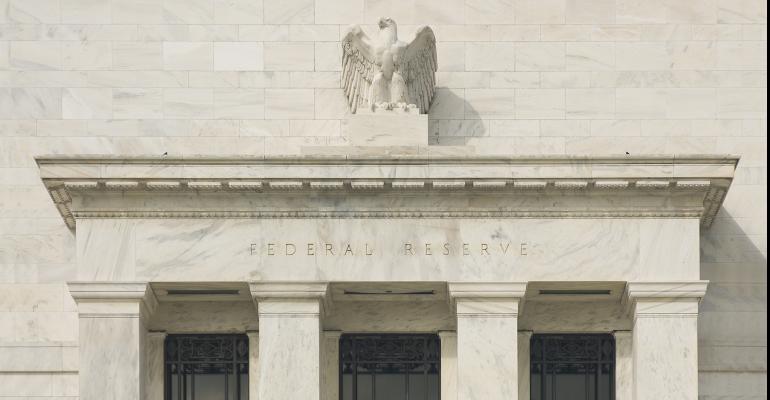(Bloomberg) -- Borrowing costs are soaring across global credit markets as investors prepare for the end of an era of loose monetary policy.
In Europe, borrowing costs for the most credit-worthy companies rose above 1% for the first time since the summer of 2020. Meanwhile, the junk market’s window for refinancing at cheaper rates has now closed. And the worldwide cost of protecting against defaults for both investment grade and high-yield firms is surging.
Investors are scrambling to position for more hawkish policies from the Federal Reserve to the Bank of England and the European Central Bank as officials seek to tame runaway inflation. An unexpectedly strong U.S. jobs reading Friday added to the Fed’s case for raising rates, pushing up U.S. credit risk gauges and roiling Asian markets Monday.
“It’s a crazy situation at the moment with all this speculation about rate hikes,” said Michael Koehler, a credit strategist at Landesbank Baden-Wuerttemberg, by phone. “Long-term, we believe it’s good to be overweight credit but for now investors are feeling the pressure.”
The speed of the moves has caught analysts by surprise. Last week, Commerzbank AG strategists became the first to significantly beef up spread targets, saying that widening “looks set to kick in earlier and more forcefully” than they had thought.
European junk firms that haven’t already eased their debt burdens by issuing bonds with lower coupons missed their chance.The global credit rout sent the average yield on sub-investment grade bonds in Europe to 3.74%, about 20 basis points above the average coupon, according to a Bloomberg index, which has a one-day lag.
For some borrowers, market volatility is proving too big an obstacle. Last week, a group of banks led by Barclays Plc was forced to delay for a second time a cross-border $1.2 billion debt sale for Apollo-owned Covis Pharmaceuticals Inc. The deal struggled to draw demand from investors even after sweetening terms.
Even safer corporate bonds are having to offer more compensation. The average yield on euro investment-grade corporate bonds rose by almost half last week to 1.1%, based on Bloomberg indexes.
The cost of protection against defaults for a basket of European high-grade firms kept rising on Monday: it now takes 66,000 euros ($75,500) annually to insure 10 million euros of debt, up from 58,800 euros a week ago.
‘Stock Picking’
“Stock picking in credit is more important than ever at the moment, investors really can’t afford to be caught out amid so much volatility,” said Ben Pakenham, head of European high-yield and global loans at Aberdeen Standard Investments in London. The pace and uncertainty about the number of hikes this year “has sent longer dated credits into a bit of a tailspin.”
Investors were showing hints of caution even before last week’s slump. The sweeteners they demanded to buy newly minted bonds, known as new issue concessions, had doubled from the same period last year. And when borrowers offered more than one tranche to the market, buyers showed preference for the shorter one, which is less prone to losing value when yields rise.
Still, there may be opportunities for the intrepid. Volatility in the euro high-grade tracker, using a 30-day metric, has shot up to its highest level since June 2020, offering a chance for buy-the-dip investors.
“There is some value to be had for those who are willing to ride out the choppy waters of the next few months before the inflation picture starts to cool somewhat,” CreditSights strategists wrote in a note to clients Monday.
EMEA
The long-awaited U.K. gilt and a potential issuance from the EU may boost SSA sales this week and keep the sector ahead again in Europe’s publicly syndicated debt market.
- So far, four issuers across five tranches are set to price deals on Monday, equating to at least 2.4 billion euros
- The U.K.’s Debt Management Office has said the new conventional gilt maturing in 2073 is planned for launch by syndication this week
- The European Union plans five NextGenerationEU bond sales via syndication in 1H of 2022, with one proposed for this week
Americas
As the prospect of aggressive central-bank rate hikes continues to grow, U.S. credit markets are showing signs of stress, with high-grade spreads widening to their most since November 2020.
- Carlyle Group Inc. is in advanced discussions to acquire Todd Boehly’s CBAM Partners investment firm, according to people with knowledge of the matter, as the private equity giant seeks to expand its reach across credit markets
- No companies undertook U.S. high-grade bond sales Friday amid the U.S. jobs report
- Michael Buchanan, deputy chief investment officer at Western Asset Management, says there are plenty of bargains to be found in junk bonds, including high-coupon debt trading above par that might get called early
- For deal updates, click here for the New Issue Monitor
Asia
Chinese high-yield dollar bonds dropped Monday morning, with notes of developer Logan Group Co. leading declines as traders in mainland China returned after a week-long holiday.
- The global bond rout extended, led by a selloff in Australian notes and an increase in the 10-year Japanese government debt yield to its highest since January 2016 at 0.205%
- The primary Asia dollar bond market was muted, extending a slow patch around the Lunar New Year holiday
© 2022 Bloomberg L.P.





